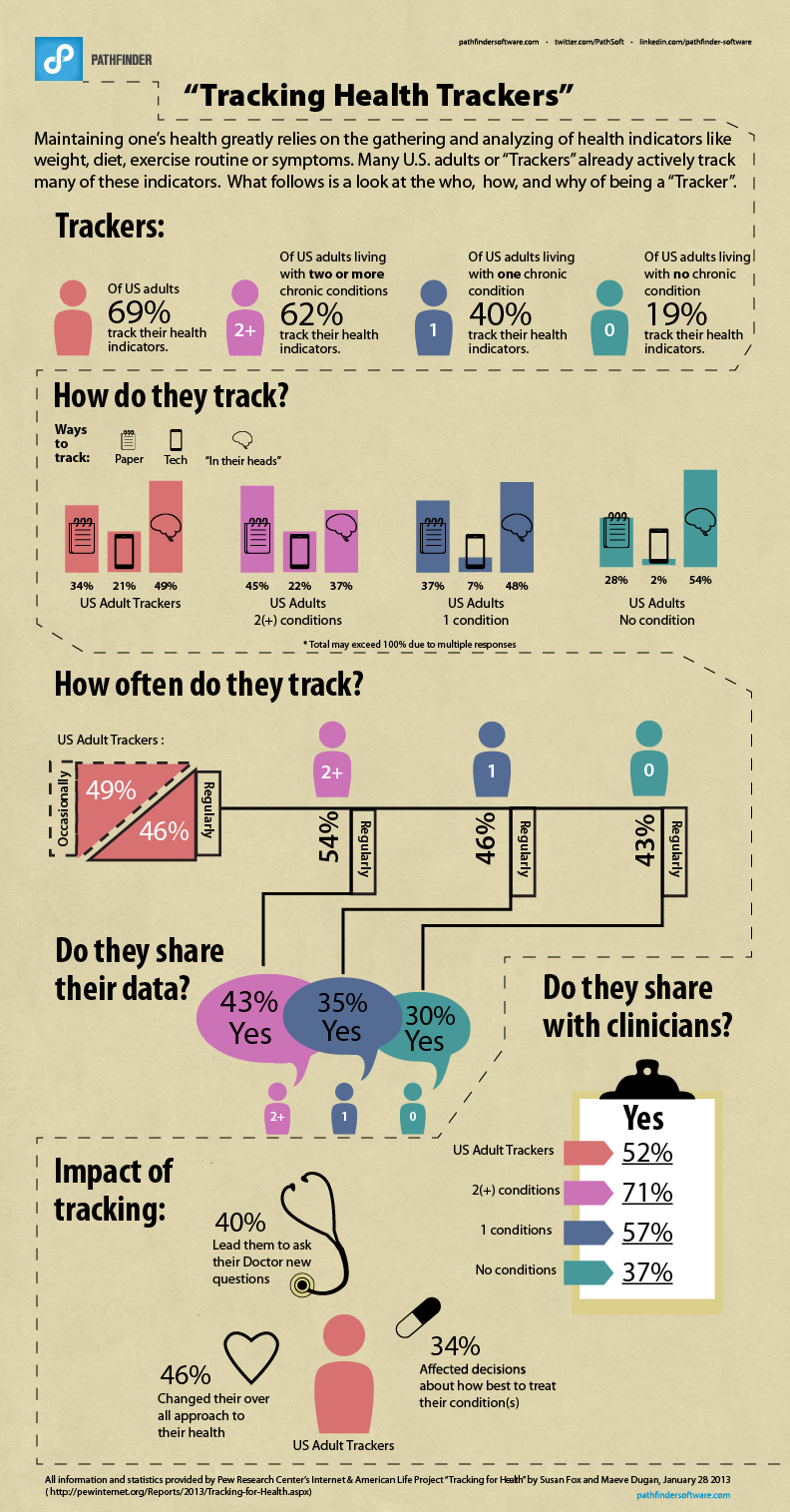“Tracking Health Trackers” infographic created by Pathfinder Software highlights the impact of quantified self tracking.
70 percent of physicians report that at least one of their patients is sharing health measurement data with them, according to a new report by Manhattan Research. The firm conducted an online survey of 2,950 physicians across 25 specialties during the first quarter of 2013.
James Avallone, Director of Physician Research at Manhattan Research said,
“Self-tracking is already a part of the care paradigm and its prevalence is going to accelerate rapidly as digital connection, payment reform, and outcome-focused delivery make advances”
The recent report shared some of the same key findings from the recent Pew Internet and American Life Project’s report in January that found 69% of U.S. adults keep track of at least one health indicator such as weight, diet, exercise routine, or symptom. Of those, half track “in their heads,” one-third keep notes on paper, and one in five use technology to keep tabs on their health status.
Based on the Pew Report findings, Pathfinder Software, a healthcare software development and medical app development provider created the infographic visualization shown below that looks at the impact of self tracking. Self-tracking impacts include:
- 40% lead them to ask their doctors new questions
- 46% changed their overall approach to their health
- 34% affected decisions about how to best treat their conditions

